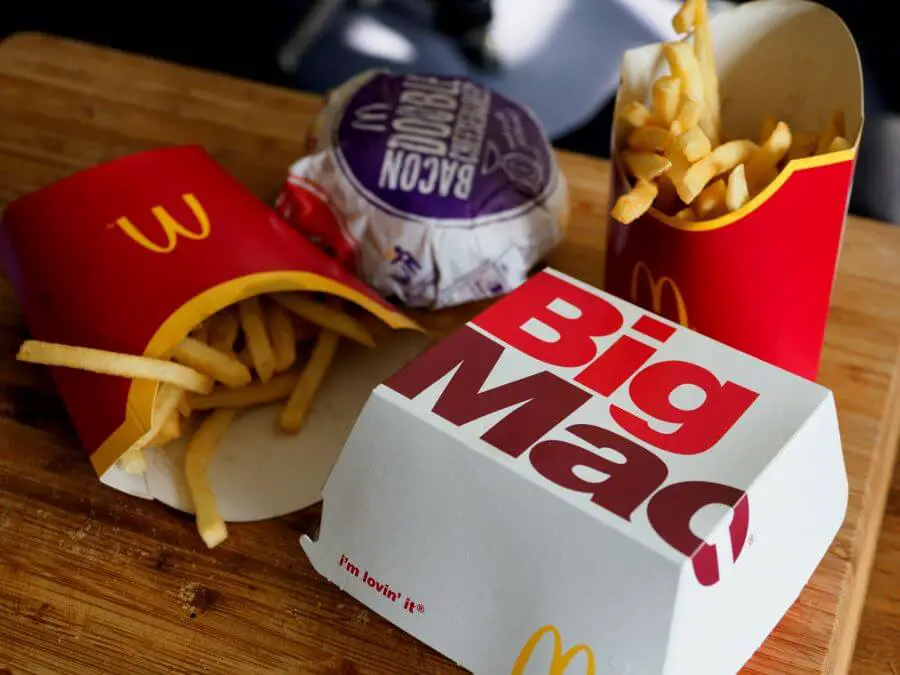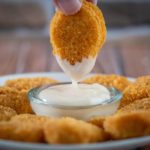
“Can you eat McDonald’s and still lose weight?” This question has been the subject of countless debates, discussions, and diet experiments. The answer might seem obvious to some at a glance – with its reputation for high-calorie, high-fat foods.
Indeed, McDonald’s isn’t conducive to weight loss. However, the reality might be more complex. It’s important to remember that weight loss is a complex process influenced by many factors, including diet, exercise, genetics, and overall lifestyle.
Understanding Weight Loss
Weight loss fundamentally comes down to creating a calorie deficit, which means burning more calories than you consume. This can be achieved by reducing calorie intake (diet) and increasing calorie expenditure (exercise).
In this context, it’s theoretically possible to eat any food – including McDonald’s – and still lose weight, as long as you maintain a calorie deficit.
Caloric Value of McDonald’s Food
Many of the items on McDonald’s menu are indeed high in calories. A Big Mac, for instance, contains around 540 calories, while a large fries packs about 490 calories.

Suppose you were to consume these two items alone. In that case, you’d already be at over 1,000 calories, which could be half or even more than half of your daily caloric allowance, depending on your age, gender, size, and activity level.
However, it’s also important to note that McDonald’s, like many other fast-food chains, offers a variety of options with varying caloric values.
For example, a Grilled Chicken Sandwich contains around 350 calories, while a side salad with Italian dressing only adds up to about 60 calories. Lower-calorie options like these allow you to fit McDonald’s into a calorie-controlled diet.
Nutritional Quality of McDonald’s Food
While considering caloric content is essential for weight loss, it’s not the only factor that matters. The food’s nutritional quality also plays a significant role in overall health.
Many of McDonald’s offerings are high in saturated fats, sodium, and sugars, which can contribute to health problems like heart disease, high blood pressure, and diabetes when consumed in excess.
Furthermore, McDonald’s food tends to be low in fiber, a nutrient crucial for digestive health, and can also help promote feelings of fullness, potentially aiding in weight control.
The lack of fruits, vegetables, and whole grains in most McDonald’s meals also means they miss essential vitamins, minerals, and antioxidants.
That being said, McDonald’s has made efforts to improve the nutritional quality of their food in recent years. They’ve introduced more salads and wraps, reduced sodium in many of their products, and offered fruit as a side option in their kids’ meals.
Therefore, it’s possible to make relatively healthier choices even when eating at McDonald’s.
The Role of Portion Sizes
Another key aspect to consider when discussing McDonald’s and weight loss is portion sizes. Over the years, portion sizes at fast-food restaurants have grown significantly, and research shows that people tend to eat more when they’re served more.
This means that even if you’re choosing lower-calorie options at McDonald’s, you might still consume more calories than you intended if you need to be mindful of portion sizes.
On the flip side, being aware of portion sizes can also be a strategy to enjoy McDonald’s while still losing weight. Instead of getting large fries, for instance, you could opt for a small.
Or you could choose to have a burger without the bun, saving calories from the bread.
Physical Activity and Metabolism
Remember that diet is just one part of the weight loss equation. Physical activity is another significant component.
Regular exercise helps burn calories, improves cardiovascular health, boosts mood, and can help build muscle mass, which can increase resting metabolic rate (the number of calories your body burns at rest).

Moreover, everyone’s metabolism is different, meaning the rate you burn calories might be more than someone else’s. Age, sex, weight, muscle mass, and genetic makeup all influence metabolism.
This is why some people might be able to eat McDonald’s regularly and not gain weight, while others might find that even occasional visits to the fast-food chain lead to weight gain.
Psychological Factors and Behavior Change
Weight loss isn’t just about the physical factors; psychological aspects also play a significant role. Habits, attitudes towards food, stress levels, sleep quality, and social influences can all impact eating behaviors and weight management.
For instance, if eating McDonald’s is a deeply ingrained habit for you, it might be challenging to change that behavior overnight. Or if you associate McDonald’s with positive emotions or use it as a coping mechanism for stress, it could be hard to break away from those patterns.
That’s why many weight loss programs incorporate psychological strategies and behavior change techniques, such as cognitive-behavioral therapy (CBT), mindfulness, and motivational interviewing.
These approaches can help address the underlying psychological factors contributing to unhealthy eating habits and support sustainable behavior change.
Individual Variability
Lastly, it’s essential to recognize that everyone’s body responds differently to different diets. What works for one person might not work for another.
Some people might find that they can include McDonald’s in their diet and still lose weight, while others might find that they need to cut out fast food entirely to see results.
This individual variability is why personalized nutrition is a growing field. The idea is to tailor dietary recommendations to each person’s unique genetic makeup, lifestyle, preferences, and health status.
Therefore, whether or not you can eat McDonald’s and still lose weight might depend mainly on your circumstances.
Conclusion
So, can you eat at McDonald’s and still lose weight? The answer is nuanced. From a purely caloric perspective, it’s possible to include McDonald’s in a weight-loss diet as long as you maintain a calorie deficit.
However, the nutritional quality of the food, portion sizes, your overall lifestyle, and individual factors also come into play.
In the end, the most effective approach to weight loss is a balanced, sustainable one that incorporates a variety of foods and regular physical activity and addresses both physical and psychological factors.
And while McDonald’s can fit into this approach, it’s best as an occasional treat rather than a regular part of your diet.






